What is a Wireless Charger?
A wireless charger is a convenient device that eliminates the need for cables. It utilizes a technology called electromagnetic induction to transfer energy wirelessly to your phone. Imagine a special plate that creates an invisible field of energy. When you place your phone on this plate, the field interacts with a component inside your phone, transferring the energy and charging the battery.
How do wireless chargers work?
When you place your phone on the wireless pad, these two coils align and create a magnetic connection.
This magnetic connection transfers energy wirelessly from the charger to your phone's coil, which then charges the battery.
Pretty cool, right?
What Are The Different Types of Wireless Chargers?
Wireless chargers aren't limited to just flat pads. While those are the most common, you can find them in various shapes and sizes to suit your needs:
Flat charging pads:

These are the classic wireless chargers, perfect for laying your phone flat while it charges.
Wireless charging stands:

These stands hold your phone upright, making it easy to watch videos or glance at notifications while it charges.
Wireless charging car mounts:
These combine a wireless charger with a car mount, keeping your phone charged and secure during your drives.
Magnetic Powerbanks: Magnetic power banks are the new deal, offering wireless charging on-the-go with magnetic attachment for a secure connection. Take the VoltaGo, for example – a reliable magnetic power bank that packs a powerful 20W punch for fast charging.
This pocket-sized powerhouse boasts MagSafe compatibility for iPhones, eliminating cable fumbling and ensuring secure charging. Plus, its foldable stand lets you watch videos hands-free while it charges, and it can even juice up two devices at once! If convenience and secure charging are your priorities, the VoltaGo is your perfect solution.
The Foldable Stand
What Are The Components of a Wireless Charger?
As mentioned earlier, the magic of wireless charging lies in its internal components:
Charging coil: This hidden coil creates the magnetic field that transfers energy to your phone.
Circuit board: This brain of the charger controls the flow of electricity and ensures safe and efficient charging.
Power source: The charger needs to be plugged into a power outlet to receive the electricity it transmits wirelessly.
Is a Wireless Charger Your Perfect Match? Here's Why!
Wireless chargers offer some clear advantages over traditional wired chargers:
Convenience : No more struggling with tangled wires! Simply place your phone on the pad and let it charge, freeing you from the cable hassle.
Reduced Wear and Tear: Constant plugging and unplugging can damage your phone's charging port over time. Wireless charging eliminates this risk.
Safety First: No exposed cables mean no risk of electrical shocks from frayed or damaged wires. This is especially beneficial in homes with curious children or playful pets.
When is a Wired Charger Preferred?
While wireless chargers offer convenience, however there are situations where wired chargers might be a better choice:
Speed Matters: In some cases, wired chargers might still be faster for charging your phone, especially older wireless charger models. Take for instance the Voltacharger TravelGo.

It delivers a whooping 140W power through its USB-C ports and can simultaneously charge five devices.
Have a closer look

Compatibility Check: Not all phones support wireless charging. Make sure your phone model is compatible before grabbing a wireless charger.
How Much Power Does a Wireless Charger Deliver?
Wireless chargers dish out power in watts (W), just like your regular wall charger. Higher watts translate to faster charging, typically between 5W for slower options and 20W or more for speedy top-ups. The science behind it? It all boils down to the "coefficient of coupling" (k) – basically, how efficiently the magnetic field transfers energy. A stronger field and a better transfer (higher k) mean more watts reach your phone for a quicker charge. Future wireless chargers will focus on boosting this efficiency to match wired charging speeds!
What to Look for When Buying a Wireless Charger
Here are some key factors to consider when selecting your wireless charger:
Compatibility: Double-check if the charger works with your specific phone model.
Power Rating: Choose a charger with enough wattage (power) to efficiently charge your phone.
Design and Size: Consider the size and style that best suits your space and needs. Some chargers offer unique features like LED lights or anti-slip surfaces.
How Much Does a Wireless Charger Cost?
Wireless charger prices vary depending on features. Simple flat chargers are the most affordable, ranging from $10 to $25 (Anker, Chotech, Yootech). Wireless charging stands cost a bit more ($15-$40) for hands-free viewing (Belkin, Samsung, Mophie). Car mounts with charging typically range from $20 to $50 (Scosche, PopSockets, iOttie).
Magnetic power banks, offering wireless charging on the go with secure magnetic hold, fall between $30 and $75 (Anker, Mophie, Belkin). The VoltaGo magnetic power bank sits comfortably within this range at just $42, packing MagSafe compatibility, 20W fast charging, a foldable stand, and dual-device charging for a feature-rich experience at a competitive price.
Conclusion: Wired vs. Wireless - It's All About Your Needs!
Wireless chargers offer a convenient and modern way to keep your phone powered up. They are a great choice if you value ease of use, want to avoid cable clutter, and prioritize protecting your phone's charging port. However, if speed is your main concern, or if your phone model doesn't support wireless charging, a wired charger might still be the way to go.
Ultimately, the best choice depends on your individual needs and preferences. So, weigh the pros.
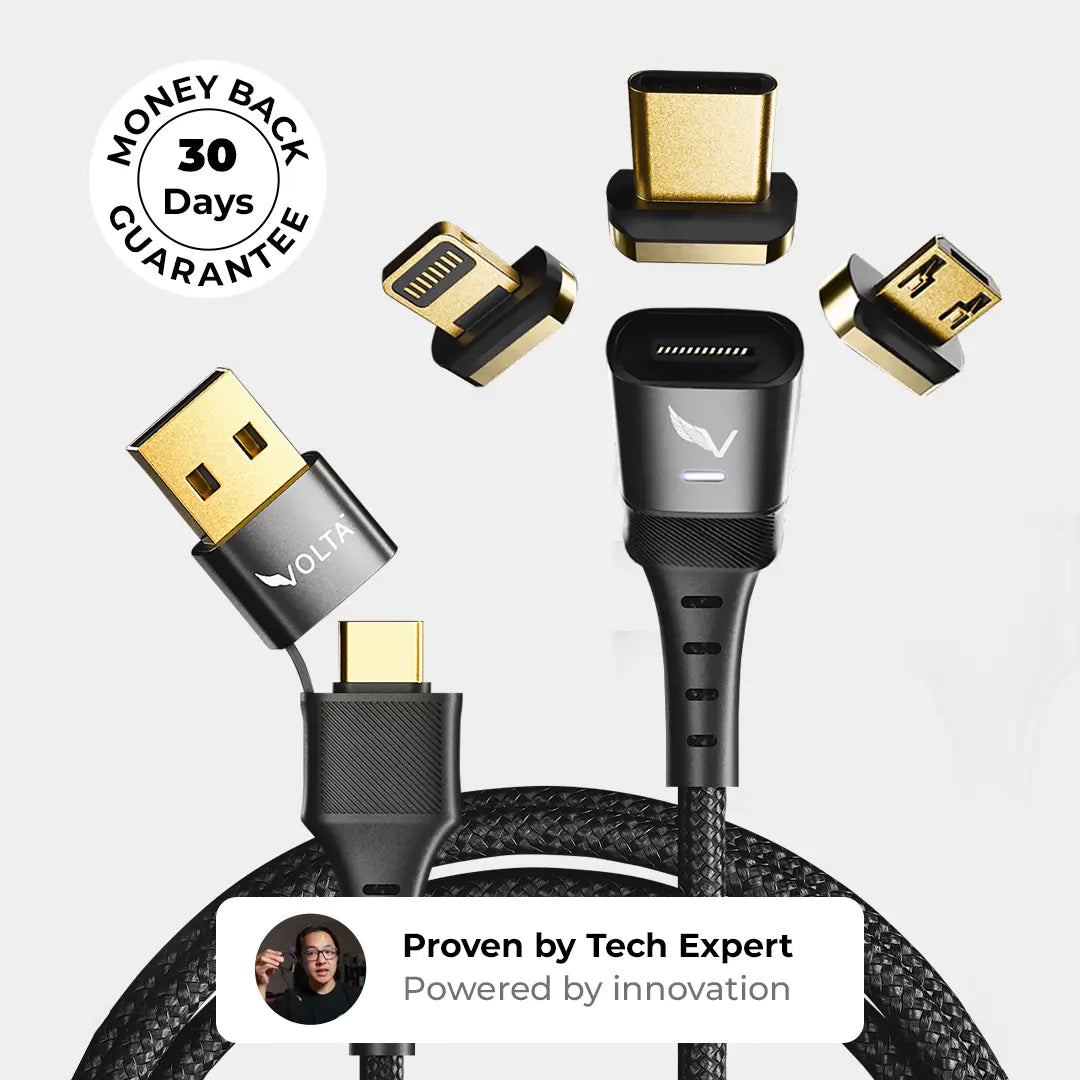
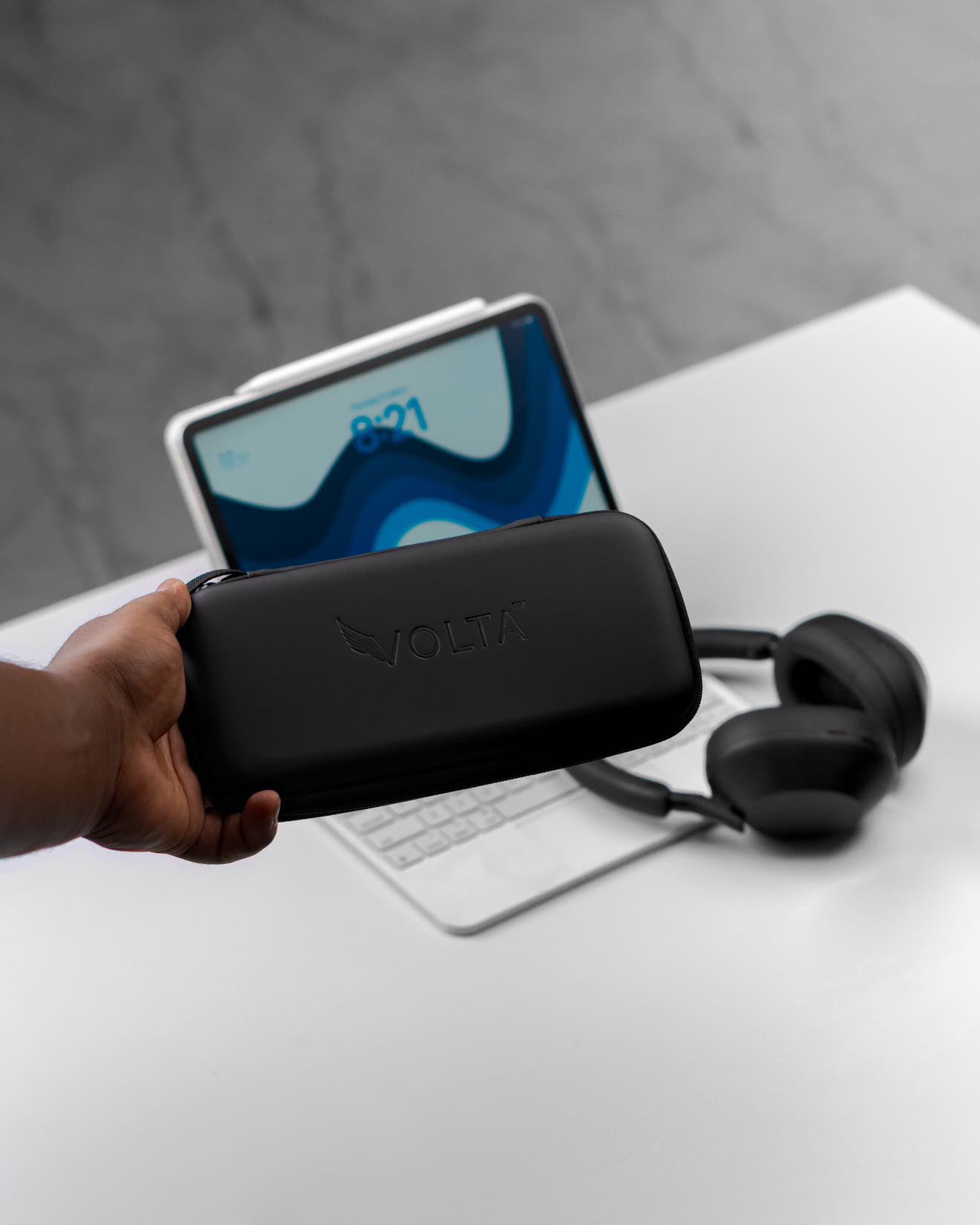
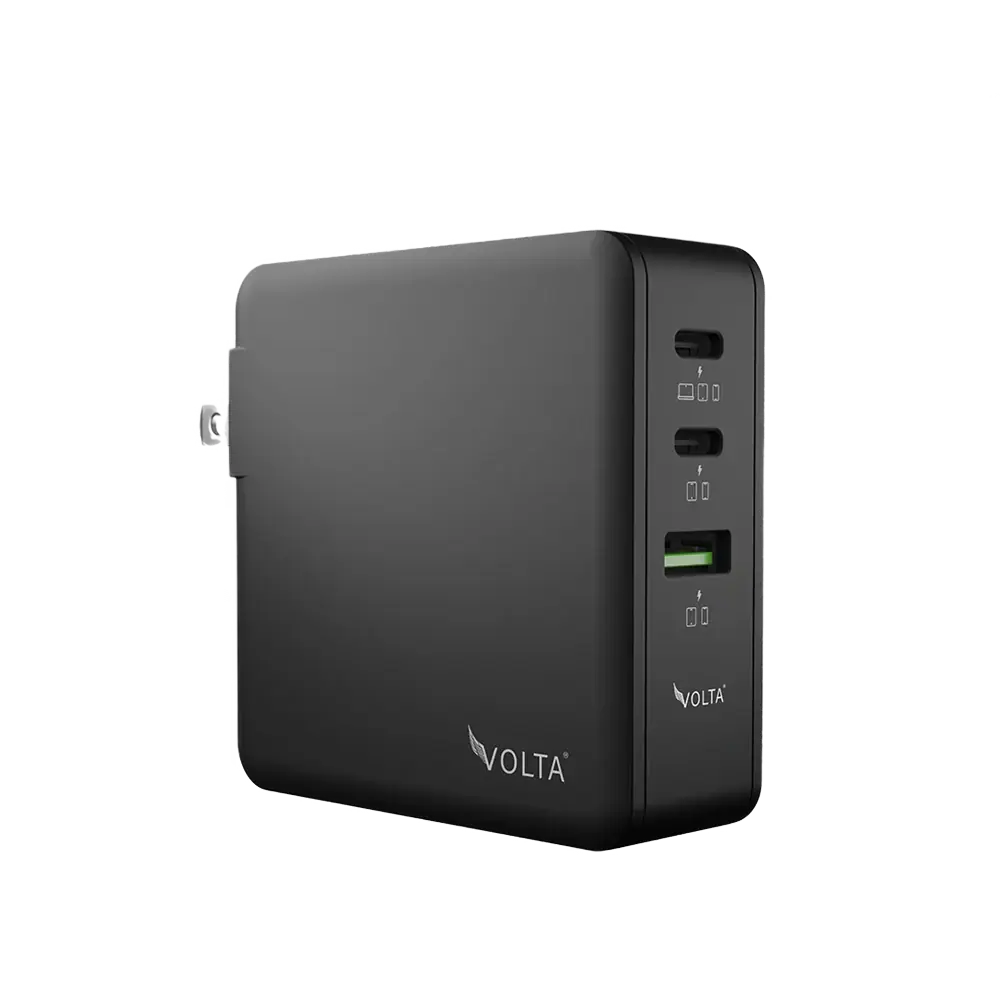
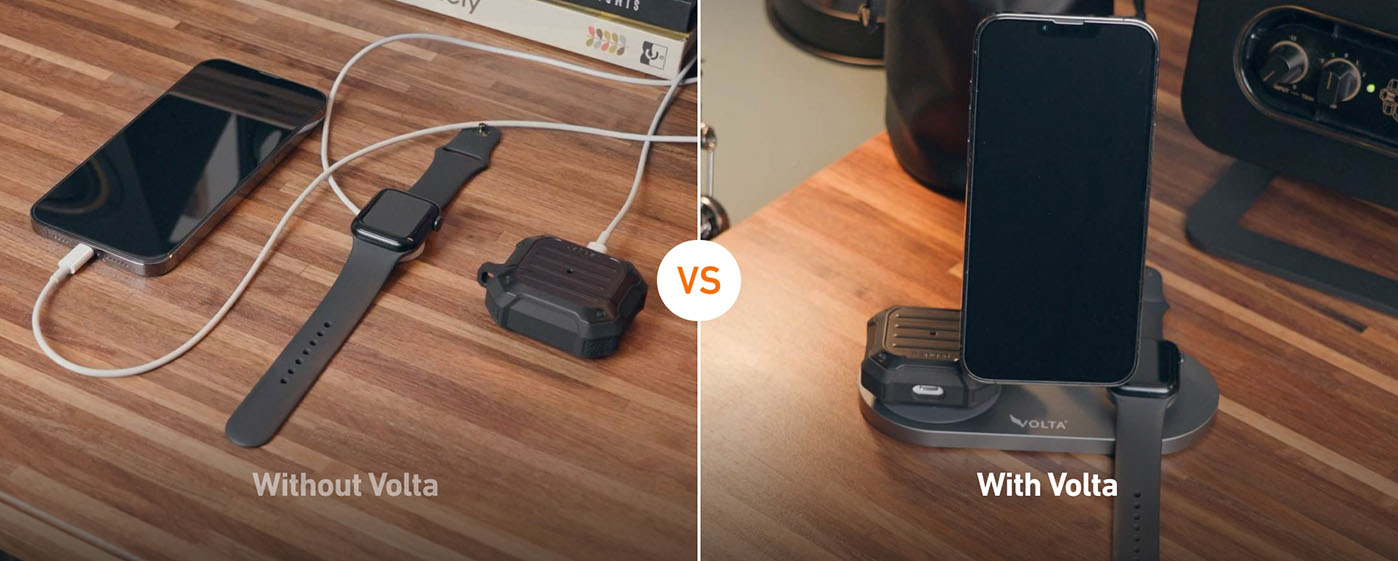



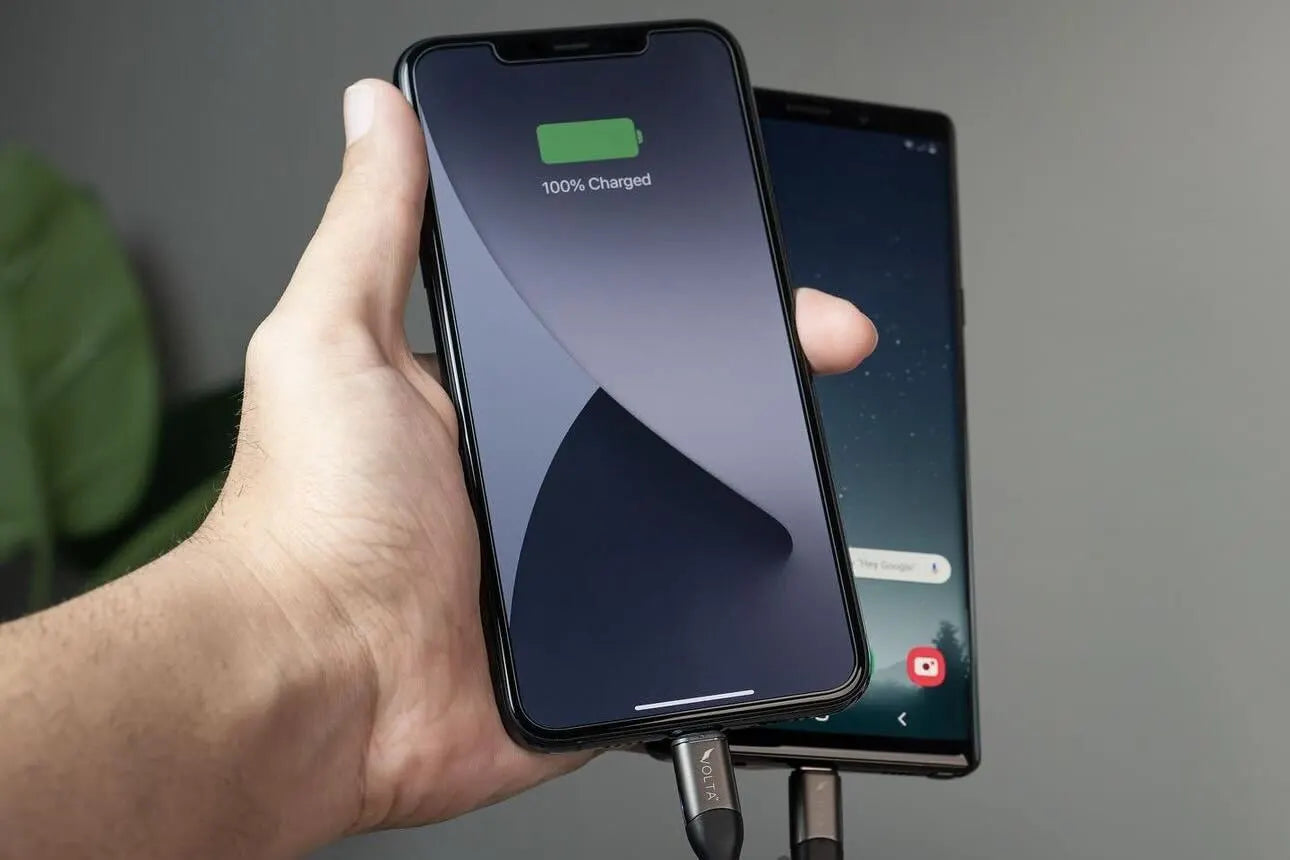
Leave a comment
This site is protected by hCaptcha and the hCaptcha Privacy Policy and Terms of Service apply.